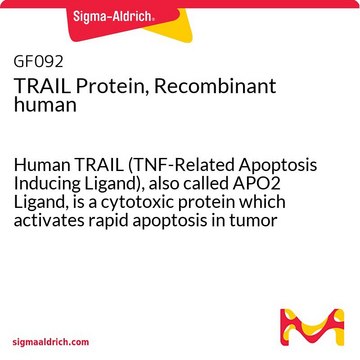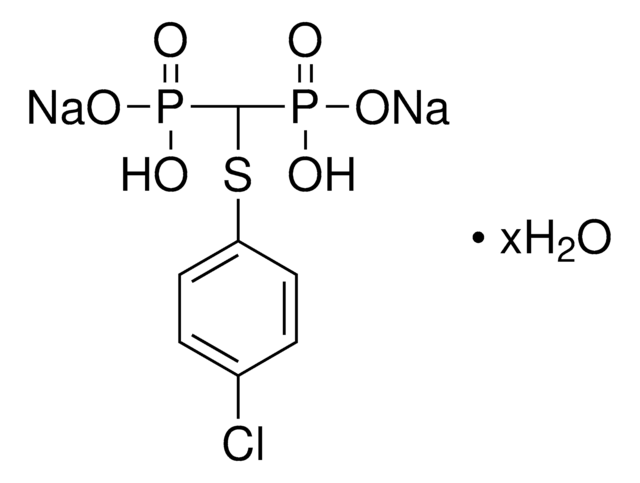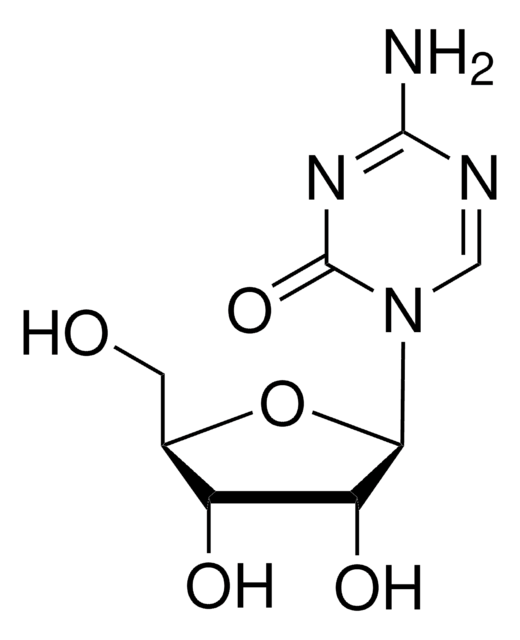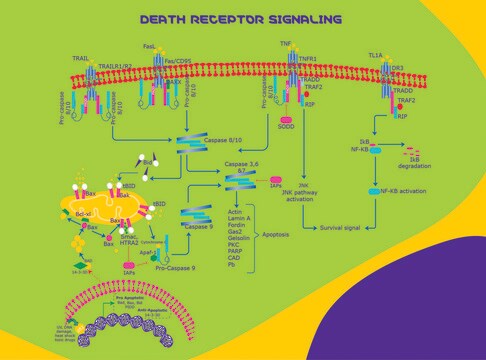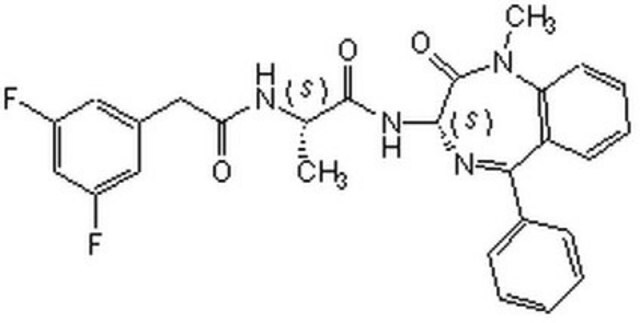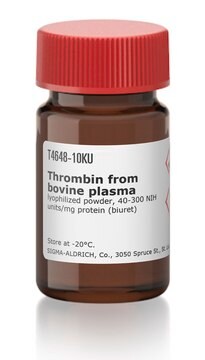T9701
TRAIL human
recombinant, expressed in E. coli, ≥98% (SDS-PAGE and HPLC), lyophilized powder
Synonym(e):
Apo2 Ligand, TL2
About This Item
Empfohlene Produkte
Biologische Quelle
human
Qualitätsniveau
Rekombinant
expressed in E. coli
Beschreibung
extracellular domain
Assay
≥98% (SDS-PAGE and HPLC)
Form
lyophilized powder
Mol-Gew.
19.6 kDa
predicted mol wt ~21 kDa
Methode(n)
immunofluorescence: suitable
Verunreinigungen
endotoxin, tested
UniProt-Hinterlegungsnummer
Lagertemp.
−20°C
Angaben zum Gen
human ... TNFSF10(8743)
Suchen Sie nach ähnlichen Produkten? Aufrufen Leitfaden zum Produktvergleich
Anwendung
Biochem./physiol. Wirkung
Physikalische Form
Hinweis zur Analyse
Lagerklassenschlüssel
11 - Combustible Solids
WGK
WGK 3
Flammpunkt (°F)
Not applicable
Flammpunkt (°C)
Not applicable
Analysenzertifikate (COA)
Suchen Sie nach Analysenzertifikate (COA), indem Sie die Lot-/Chargennummer des Produkts eingeben. Lot- und Chargennummern sind auf dem Produktetikett hinter den Wörtern ‘Lot’ oder ‘Batch’ (Lot oder Charge) zu finden.
Besitzen Sie dieses Produkt bereits?
In der Dokumentenbibliothek finden Sie die Dokumentation zu den Produkten, die Sie kürzlich erworben haben.
Kunden haben sich ebenfalls angesehen
Unser Team von Wissenschaftlern verfügt über Erfahrung in allen Forschungsbereichen einschließlich Life Science, Materialwissenschaften, chemischer Synthese, Chromatographie, Analytik und vielen mehr..
Setzen Sie sich mit dem technischen Dienst in Verbindung.